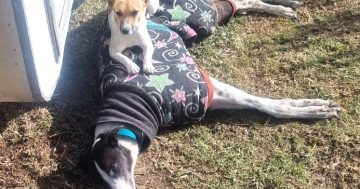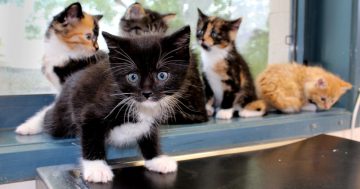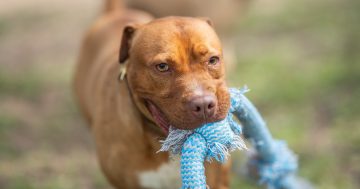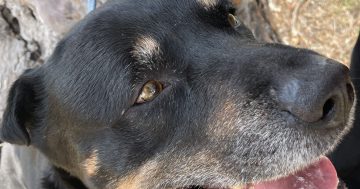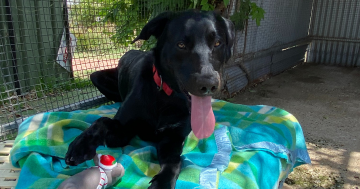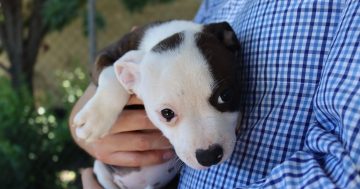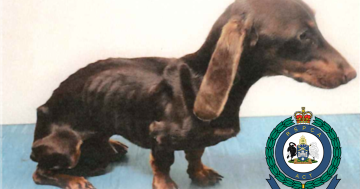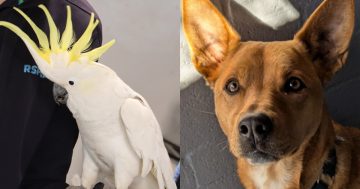
A few months ago, a four-week-old puppy (pictured) was surrendered to RSPCA ACT. He was apparently an unwanted gift, and these owners were actually his third, which meant that this puppy would have likely been taken from his mother and litter mates right after he opened his eyes.
Named Curtis by the staff, one of my experienced employees took him home to foster him since he was way too young to be adopted. During the days he would hang out in the admin office, and at night he would live in a home with several adult dogs and cats.
However, not everything was well with Curtis. He was extremely “mouthy” as a young puppy, and while cute at this stage it was a warning sign. At seven-weeks, he went through his first behavioural assessment with our certified dog trainers. He failed – showing some serious signs of aggression and guarding which is unusual for a puppy of his age.
To give Curtis another chance, we decided to try another foster carer’s home. Curtis would spend his time there being mentored and trained by a different staff member and her adult dog.
A few weeks later, he had already grown to almost double his size proving our view that he would be a very large dog. He undertook a behavioural assessment again, and he was even worse. This little puppy was soon to be a large adult dog with some serious aggression tendencies. It broke all of our hearts, but we knew that we could not rehome him and take the risk of him one day hurting a person or another animal.
Looking back on the life of Curtis, we did everything we could do to save him. What we couldn’t do was stop the original owners from selling him at such a young age via a classified ad. As a result, he did not have a chance to properly learn good dog behaviour from his mum and litter mates when he was younger.
Last month, Minister for Justice Shane Rattenbury tabled a breeding legislation amendment to the Domestic Animals Act 2000. At the heart of this bill is the prevention of puppy and kitten farms in the ACT. While we do not have an obvious issue with such farms at the moment like other states and territories, it does act as a proactive measure to reduce the risks of it occurring in the future.
Nevertheless, what I am most interested about this bill is an additional mandate that breeders would be required to display their licence number in advertisements for puppies and kittens. Right now, the main problem with breeding in the ACT is that interstate puppy farms and backyard breeders are selling their animals at markets and through online classified ads.
While this would require the ACT Government to enforce this legislation, the main benefit of this part of the bill is that it is not dependent on limited government resources for it to work. In the future it will be that the advertising channels that would also need to monitor this to ensure that a legitimate breeder’s license is being displayed.
Furthermore, this bill will finally put the appropriate information in the hands of potential pet owners. No longer will they have to guess the origins of a pet since only the legitimate breeders would be able to sell in the ACT. And if the consumer demand for backyard breeders goes away, then the potential income and often deplorable practices of unrestrained breeding goes down.
The Breeders bill will soon be entering parliamentary debate. I encourage you to support this measure now, as well as in the future when and if it is passed. Not only will this put proactive measures in place to reduce the risk of puppy and kitten farms in the ACT, it will also give the consumers the information they need to make good decisions the next time they want to purchase a pet from a breeder.
Together, let’s eliminate the risk of more Curtis stories.
Tammy Ven Dange is the Chief Executive of RSPCA ACT.












